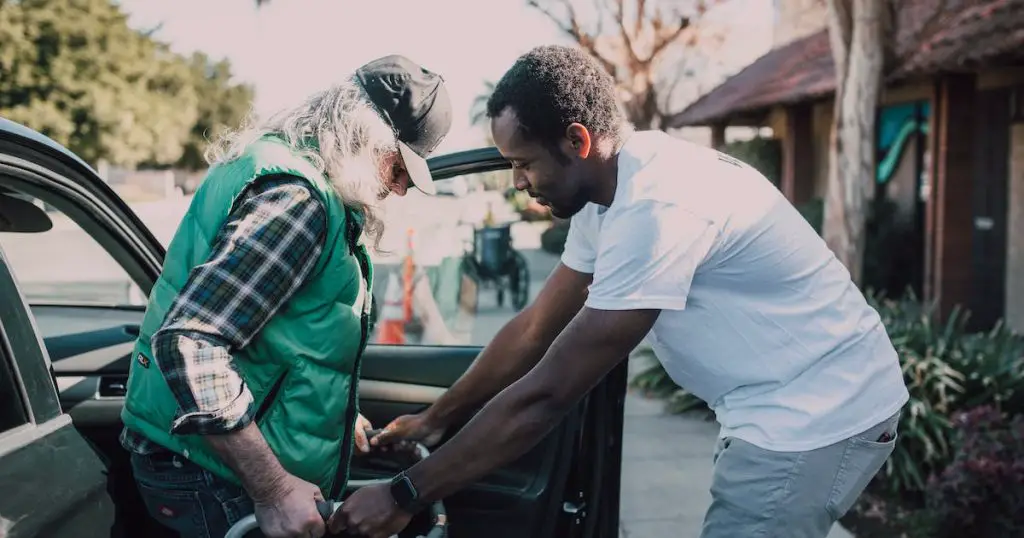The Yavapai-Prescott Indian Tribe, a vibrant and resilient community in the heart of Arizona, has a rich history and culture deeply rooted in the region. Social services play a critical role in enhancing the well-being and prosperity of tribal members.
This article delves into the diverse array of social services available to the tribe, from educational programs to healthcare, economic development, and beyond.
Discover what we have in store! Visit our product page now for exclusive deals and must-have items. Don't miss out!

We aim to provide an exhaustive and insightful look into how these services are shaping the future of the Yavapai-Prescott Indian Tribe, offering support and opportunities to its members.
Historical Context
The Yavapai-Prescott Indian Tribe’s history is a tapestry of resilience and cultural richness. Originally nomadic hunters and gatherers, the tribe has a deep connection to the land of what is now central and western Arizona.
The Yavapai’s past is marked by challenges, including displacement and conflict. However, their unwavering spirit has carried them through these trials, preserving their heritage and identity.
The trajectory of social services within Native American communities has been transformative. Initially shaped by external policies and often detrimental government interventions, these services have gradually evolved.
Today, there’s a growing emphasis on self-determination and culturally sensitive approaches, empowering tribes like the Yavapai-Prescott to tailor services to their unique needs and traditions.
Historical events, particularly those involving policies like the Indian Removal Act and the era of Indian boarding schools, have left indelible marks on Native American communities. These events have necessitated a reimagining of social services, now focusing on healing, cultural preservation, and community rebuilding.
Education Services
The Yavapai-Prescott Indian Tribe recognizes the importance of early childhood education. Programs like Head Start cater to the developmental needs of children, laying a foundation for lifelong learning and success. These initiatives not only focus on academic readiness but also on social and emotional development, steeped in cultural values.
For school-aged children, the tribe offers comprehensive educational programs that blend standard curricula with cultural education. This dual approach ensures that students receive a well-rounded education, preparing them for the future while keeping them connected to their heritage.
In higher education, the tribe facilitates access to colleges and universities through scholarships and support programs. These initiatives open doors for tribal youth to pursue diverse academic and career paths, significantly contributing to community development.
Lifelong learning is encouraged through adult education and vocational training programs. These are designed to enhance skills, provide new career opportunities, and foster personal growth, thereby enriching the community as a whole.
Health and Wellness
The Yavapai-Prescott Indian Tribe offers comprehensive healthcare services, focusing on prevention, treatment, and wellness. Clinics and health programs provide essential services, from routine check-ups to specialized care, ensuring the physical well-being of the community.
Mental health is a crucial aspect of overall well-being. The tribe provides counseling services, support groups, and mental health initiatives that address various needs, from stress management to coping with trauma, emphasizing culturally sensitive approaches.
Addressing substance abuse is a priority for the tribe. Programs are in place to prevent substance misuse and provide treatment and support for those in recovery. These efforts aim to foster a healthy and resilient community.
Integrating traditional medicine and cultural healing practices, the tribe offers a holistic approach to health. These practices not only address physical ailments but also support spiritual and emotional well-being, honoring the tribe’s ancestral knowledge.
Economic Development
Economic prosperity for the tribe is supported through employment services and job training programs. These initiatives help members gain skills and find meaningful employment, boosting the local economy and reducing unemployment.
Encouraging entrepreneurship, the tribe provides resources and guidance for starting and growing businesses. This not only fosters economic independence but also contributes to the broader economic development of the tribal community.
Financial literacy programs are essential in empowering tribe members to manage their finances effectively. Assistance programs provide support during financial hardships, ensuring stability and security for families.
Housing and Infrastructure
Access to affordable housing is crucial for community well-being. The tribe has initiatives to provide quality housing options for members, addressing the needs of various demographics, including low-income families and the elderly.
Investing in infrastructure, the tribe works on projects that improve living conditions and accessibility. These developments range from road construction to utility upgrades, enhancing the quality of life for the community.
Support services for utilities and maintenance ensure that community members have access to essential services like water, electricity, and sanitation. These efforts are crucial for creating a safe and healthy living environment.
Cultural Preservation
The Yavapai-Prescott Indian Tribe understands the importance of preserving its language. Language revitalization programs are instrumental in keeping the tribe’s linguistic heritage alive, offering classes and resources for all ages.
Cultural heritage is celebrated and preserved through various projects and events. These initiatives include cultural festivals, traditional crafts workshops, and storytelling sessions, fostering a strong sense of identity and community pride.
Museums and archives play a pivotal role in preserving the tribe’s history and culture. These institutions serve as custodians of tribal artifacts, documents, and artworks, providing educational resources for both the tribal community and the public.
Legal and Advocacy Services
The tribe provides legal assistance and representation to its members, ensuring access to justice and advocacy in matters ranging from civil rights to land claims and family law.
Advocacy efforts are crucial in promoting and protecting the tribe’s rights and interests. This includes lobbying for policy changes, engaging in legal battles, and raising awareness about issues affecting the tribal community.

Child welfare and family services are integral to the tribe’s social fabric. These services aim to support family integrity, provide care and protection for children, and ensure their well-being and development within the community context.
Environmental Stewardship
Environmental stewardship is deeply ingrained in the tribe’s values. Conservation and land management programs focus on protecting natural resources, preserving biodiversity, and promoting sustainable practices.
Sustainable development initiatives align economic growth with environmental conservation. The tribe actively works on projects that promote green energy, waste reduction, and eco-friendly practices.
Protecting wildlife and their habitats is essential for maintaining the ecological balance. The tribe’s efforts in wildlife preservation are crucial in safeguarding native species and ensuring the health of the ecosystem.
Community Engagement and Support
Elderly members are revered in the tribe for their wisdom and experience. Senior programs focus on providing care, social activities, and health services, ensuring a dignified and fulfilling life for elders.
Youth are the future of the tribe, and their development is a top priority. Programs focusing on mentorship, leadership development, and community engagement help prepare young members for future roles within and outside the tribe.
Community events and gatherings strengthen the bonds among tribe members. These occasions, ranging from cultural celebrations to community meetings, foster unity, mutual understanding, and a shared sense of purpose.
Emergency Services and Disaster Relief
The tribe’s emergency response and preparedness measures are vital for community safety. These include emergency response teams, disaster preparedness training, and crisis management plans.
In the event of disasters, the tribe has mechanisms in place for relief and recovery. These programs provide immediate aid and long-term support for affected community members, ensuring resilience and recovery.
Crisis intervention services address immediate needs in emergencies, offering support and resources. These systems are crucial for providing stability and assistance during challenging times.
Partnerships and Collaborations
The tribe collaborates with various government agencies to enhance service delivery and resource sharing. These partnerships bring in expertise, funding, and support for diverse community projects.
Non-profit organizations play a vital role in supplementing the tribe’s social services. These partnerships bring additional resources, specialized services, and advocacy support to the community.

Inter-tribal cooperation strengthens the tribe’s efforts in various domains. Collaborating with other tribes allows for knowledge exchange, shared initiatives, and a united voice on broader Indigenous issues.
Challenges and Limitations
Despite the range of services, the tribe faces challenges like limited funding and resource constraints. This often impacts the extent and quality of services provided.
Reaching all community members, especially those in remote areas or with specific needs, remains a challenge. Ensuring accessibility and effective outreach is crucial for inclusive service delivery.
Navigating policy and legislative barriers is a constant challenge. Advocacy and legal efforts are needed to address these issues and create a more favorable environment for the tribe’s development.
Future Directions
The tribe is exploring innovative approaches to enhance social services. These include integrating technology, developing new programs tailored to evolving needs, and adopting best practices from both Indigenous and non-Indigenous sources.
Setting long-term goals and engaging in strategic planning are crucial for the sustained development of the tribe. These efforts focus on areas like education, healthcare, economic stability, and cultural preservation, ensuring a prosperous future for the tribe.
Community involvement is key to the success of social services. Regular feedback, participation in decision-making processes, and active engagement of tribal members are essential for services that truly meet the community’s needs.
FAQs: Social Services for the Yavapai-Prescott Indian Tribe
The tribe offers a wide range of services, including education, healthcare, economic development, housing, cultural preservation, legal assistance, environmental stewardship, and emergency services.
How can one access these services?
Services can be accessed through the tribe’s administrative offices, community centers, and specific program offices. Contact details and procedures are usually available on the tribe’s official website or through community announcements.
What are the main challenges faced in providing these services?
Challenges include funding limitations, accessibility in remote areas, and navigating policy and legislative barriers.
How can individuals or organizations contribute to the improvement of these services?
Contributions can be made through donations, volunteering, partnerships, and advocacy. Engaging with tribal initiatives and respecting their autonomy and cultural values is also crucial.
Conclusion
The social services for the Yavapai-Prescott Indian Tribe embody a commitment to community well-being, cultural preservation, and sustainable development. Despite challenges, the tribe continues to innovate and adapt, ensuring that its members receive the support they need to thrive.
This comprehensive guide highlights the importance of these services and the ongoing efforts to enhance them, underscoring the tribe’s resilience and determination to forge a bright future for its members.



Leave a Comment
You must be logged in to post a comment.